Fees, funding and the HE review
Sam Gyimah responded to a parliamentary question quashing the notion that UK students might be able to access student loans to study in international destinations.
THAT interview: Greening on maintenance grants & fees
Justine Greening (former Secretary of State for Education) made big news this week during her interview on the Today programme on Monday. This was her first interview since leaving the Cabinet. Reporting of the interview implies she criticised Government policy, primarily the abolition of maintenance grants, and failed to deny she was sacked from Cabinet because she blocked the HE major review. Read this short Guardian live blog for the salient quotes from Greening’s interview to decide for yourself how critical she really was.
Meanwhile Research Professional (RP) interpret Justine’s thoughts on fees as proposing ‘a mostly unnoticed alternative way to fund universities’, culminating in a thought provoking article on fees: A third way. RP report that Justine felt the government should move away from talking about loans to selling the idea of “time-limited graduate contributions” a phrase first coined by Martin Lewis (MoneySavingExpert.com). RP report that Greening went on: we need to have a student finance system that is progressive”, and that money raised from TLGC [time-limited graduate contributions] should be ring-fenced and put into a higher education fund “so that graduates today know that their contribution is helping to pay for students to get the same opportunities they had at university”.
She also suggested that employers could contribute to such a fund and that all graduates should pay into it for the entire 30 years. In this way, better-off students would not be able to have their fees paid upfront or repay their loans early as a consequence of large salaries. RP go on to debate how this resembles a graduate tax and the problems associated with a graduate tax scheme, including:
- The proposal also seems to abandon several of the principles that underpin the funding system. Student loans are not a form of taxation because they are attached to named individuals, are related to the amount borrowed, are subject to interest rates and can be sold to third parties.
- Importantly, taxation should be progressive. There is a small difference in the interest rate charged to graduates earning more than £41,000, but there is no difference in the percentage of earnings that graduates repay—9 per cent—across the pay range.
Returning to social mobility and the maintenance grants RP write:
- Greening, as an avowed champion of social mobility, offered her proposal as a way of removing the fear of debt as a barrier to participation. A higher education fund would be accompanied, in Greening’s mind, by maintenance grants for disadvantaged students, presumably paid for by the fund. In this respect, that part of the proposal begins to look a lot like a return to means-tested grants with a parental contribution.
- It is interesting that the former education secretary, who approved the politically unacceptable policy of index-linked rises in the fee level, should end up advocating a policy that is really neither one thing nor the other. It is a move away from the loan system but not an embrace of the direct taxation that underpins Labour’s offer to abolish fees. It is, if you will, a third way.
- Prime minister Theresa May’s primary concern is the perceived value for money of a university education. Selling TLGC on the doorstep as retail politics would involve a considerable gearshift away from one idea of the value of higher education towards another.
Wonkhe picked up on another element of the Greening interview: there were suggestions that some in government were pushing for variable fees by subject – Greening cautioned that this could encourage students from lower income backgrounds into non-STEM degrees.
Later on Sam Gyimah (Universities Minister) took part in the Today programme, to describe how living costs and value for money are of great concern to current students. Wonkhe report that he admitted that no change would be made by the next academic year (it would not be “credible” to do so), but was clear the review would have an independent element. There was the implication that fees would remain frozen until this was complete (as per Theresa May’s comments). See below for the OfS research into value for money launched last week.
Angela Rayner (Labour), Shadow Sec of State for Education) capitalised on Justine’s interview asking an oral parliamentary question:
Q – The Secretary of State’s predecessor this morning admitted that they were wrong to abolish maintenance grants, that the student finance system is regressive, that variable fees will punish the poorest and that their review is intended to kick the issue into the long grass, rather than make decisions. Apart from that, she is very supportive. But she is right, is she not?
A – Damian Hinds (Conservative, Sec of State for Education): We have a system of higher education finance in this country that means unprecedented levels of disadvantaged people can go to university and our universities are properly funded. In October the Prime Minister said that we would be taking quick action, raising the threshold for repayment and freezing the top fees for the next academic year. It is also right that we have a full review, looking at all aspects of value for money for young people and others going to university, and at the alternatives to university, such as taking a degree apprenticeship, as we discussed earlier.
Office for Students
The Office for Students confirmed they will run the TEF this year (as per timing and specifications already established by HEFCE). Chris Husbands (VC Sheffield Hallam) will remain as TEF Panel Chair (confirmed until August 2021).
Last week the OfS launched research into student perceptions of value for money. They state it will take forward its legal responsibilities to promote value for money. The research will cover:
- Fees and charges
- What students identify as value (services and opportunities)
- Immediate concerns around value for money
- Cross subsidisation
- Provider transparency
Nicola Dandridge (Chief Executive of OfS) said: “This important research will be invaluable in understanding more about what value for money means for students. The OfS has a duty to promote value for money and it has been clear from my visits to students’ unions that these issues provoke significant discussion. This research will allow us to deepen our understanding of this important issue, and prepare the ground for future inquiry.”
Data and Quality – designated bodies: Following the OfS Regulatory consultations (December) DfE have confirmed that HESA (data) and the QAA (quality) were the only applicants for the designated bodies and the sector response was virtually unanimous in support for the two bodies to be reappointed. The OfS will consider the sector’s response in their recommendation DfE which a final decision on their appointment due in late March.
Alternative providers
In the Lords there was question on safeguarding against plagiarism within alternative providers:
Q – Lord Storey: Whether there is clear guidance on the use of the plagiarism checker technology Turnitin by those universities that validate degrees from private and independent colleges.
A – Viscount Younger Of Leckie:
- Higher education providers, as autonomous organisations, are responsible for handling matters of this nature, including developing and implementing policies to detect and discourage plagiarism.
- Although the government does not provide guidance on, or advocate the use of, plagiarism software to help providers tackle the issue of plagiarism, we asked the Quality Assurance Agency, Universities UK and the National Union of Students to produce new guidance, which was published in October 2017.
- This guidance is the first set of comprehensive advice for providers and students on the subject. It makes clear that where providers are working with others to deliver programmes, such as through validation, care should be taken to ensure that partner organisations are taking the risks of academic misconduct seriously. Providers are also encouraged to consider steps to scrutinise potential partners’ processes and regulations when developing validation arrangements. This is in line with the wider expectations set out in the UK Quality Code for Higher Education, which all providers must meet. This establishes the fundamental principle that degree awarding bodies have ultimate responsibility for academic standards and the quality of learning opportunities, regardless of where these opportunities are delivered and who provides them.
- Going forward I expect the Office for Students to encourage and support the sector to implement strong policies and sanctions to address this important issue in the most robust way possible.
Nurse training
Within the Lords there was a question on nurse training:
Q – Baroness Neville-Rolfe: Whether they have any evidence that difficulties in recruiting UK nationals as nurses reflect changes in the UK’s higher education system in recent years.
A – Viscount Younger Of Leckie:
- Until 1 August 2017, nursing, midwifery and allied health profession students had their training costs largely borne by the NHS, and this was not affected by changes to the wider higher education system.
- From 1 August 2017, most new undergraduate healthcare students receive tuition fee loans and, for full-time courses, living costs support, administered by the Student Loans Company. The former Department of Health also confirmed that it would fund up to an additional 10,000 clinical placements to support this expansion. These students are in their first year of university study.
- These reforms to healthcare student funding will help secure the future supply of nurses to the NHS by removing the artificial cap on training numbers in these professions, and enabling thousands of additional UK applicants to gain a place to study nursing at university.
Locally, Richard Drax (Conservative, South Dorset) used PM question time to ask the Government to improve rail links within South Dorset.
International Matters
UK-China Education Deals
The Prime Minister announced UK-China education deals on Wednesday. The package consists of exchange deals, partnerships and commercial contracts from pre-school to post-graduation. She said: “The close ties between the UK and China are reflected in our relationship on education. More than 150,000 Chinese students study at the UK’s world-leading institutions and make a significant contribution to our academic life.”
It’s well known that Chinese students are the largest group of overseas students within UK education. The Government notes that 9,000 young British are studying/interns in China (a 60% increase since 2013). The deal was reported in Professionals in International Education who cite HESA data to remind of the stagnation in HE international students studying in the UK over recent years. The HE sector has long been calling on Government to paint a more welcoming picture to overseas prospective students. However, so far Theresa May has stood firmly behind her plans to include students within the net migration targets. Could this be part of a softer, more welcoming, approach without her losing face over the target battleground (yet)?
The package:
- The UK-China Maths Teacher Exchange for primary schools has been extended to 2020 (two week exchanges both ways). By 2023 the Government estimates 11,000 schools will have experienced the East-Asian style maths Teaching for Mastery programme.
- More study exchanges and information sharing on vocational education
- Promotion of English proficiency in China.
The bill for the education deals is in excess of £550 million and is expected to create 800 UK jobs.
International Questions
At Prime Minister’s questions this week Daniel Zeichener (Labour) cited the value international students bring to the economy questioning why the PM’s policy continued to seek to reduce the number of international students. The Government responded that visa numbers were up since 2010.
In the House of Lords questions Lord Norton of Louth (Conservative) asked what plans the Government has to increase funding for promoting campaigns to encourage students in overseas countries to study in the UK.
Baroness Fairhead (Conservative) responded:
- The Study UK: Discover You (“Study UK”) campaign led by the British Council, aims to promote UK higher education, attract the brightest and best students to choose the UK and support UK universities in their international objectives. Study UK is a core component of the government’s GREAT Britain campaign (“GREAT”), which showcases the very best of what our whole nation has to offer in order to encourage the world to visit, study and do business with the UK.
- Study UK uses digital and face to face activity in key markets to promote the quality and distinctiveness of the UK education offer in the highly competitive international market for globally mobile students. The campaign also promotes the success of international alumni of British universities in their countries and promotes other forms of UK study – for instance, by encouraging international students to study online courses provided by UK universities.
- Activity to encouraged overseas students to study UK courses on the online FutureLearn platform led to over 100,000 extra enrolments by overseas students on MOOCs (“Massive Open Online Courses”) provided by UK universities in 2016/17. Students enrolled from 124 different countries. This year, the programme has driven more than 60,000 such new enrolments to date.
Lord Luce asked whether the purpose of the Commonwealth Education Ministers meeting would strengthen commonwealth cooperation between universities and schools for the benefit of young people.
Lord Agnew of Oulton responded: The purpose of the Conference is to strengthen cooperation across the Commonwealth for the benefit of young people of all ages. A key objective of this year’s conference is to address and define mechanisms through which education systems across the Commonwealth can enable sustainable development, and address major global challenges, such as climate change. This is a topic, which is of importance to young people across all member states.
Finally Chris Law (SNP) raised the reintroduction of the post-study work visa and asked if Scotland could tailor its own immigration policy for students.
Sam Gyimah (Conservative, HE Minister) responded: a lot of work is being done on international students by the Migration Advisory Committee. I am happy to consider the issue of Scottish visas specifically and come back to him on it.
Brexit – Policy Exchange have published Immigration After Brexit – What should post-Brexit immigration policy look like? They argue for a system limiting low skilled EU immigration but with more generous terms for high skilled professionals. There should be a customised “light touch” work permit system for EU professionals and — as Britain weans itself off low skilled migration — there should be priority for low skilled workers ready to work antisocial hours, thereby acting more as complements than direct competitors to the British workforce.
Brexit effect on the 2017 General Election – Kings College London has produced Voting in the 2017 general election: a Brexit election. A quick read for those interested in the voting surprises of the 2017 general election. The blog notes the slight tendency of those with degrees to vote Labour over Conservative. The article concludes:
- Even a year after the referendum, the BES found no sign of a decline in the ‘very strong’ sense of identification with Leave and Remain camps, which are substantially more important to voters than their party identities… so when problems arise, and they will as the Brexit negotiations progress, we can expect to see voters once again switching to parties that best represent their views on Brexit.
You can read BU’s response to the Migration Advisory Committee on International Students – economic and social benefits
Driving Innovation – an Asian perspective
HEPI have published Major shifts in global HE: A perspective from Asia. It discusses the rapid shifts in Asian HE (massification, rise of liberal arts, research importance, and graduate under-employment). Eastwood (VC, Birmingham) states: Asian universities have changed the paradigm for developing a university. Many have achieved a standing, a stature and a maturity much more rapidly than had previously been thought possible. This…includes challenges that are very familiar to us: challenges of making our universities fit, not just for tomorrow, but for a generation of students who are going to live and work differently. Universities are going to have touchpoints with their graduates over a much longer period of their lives than traditionally has been the case. Professor Tan’s Lecture includes some challenging questions for us in the UK. It shows our present debate on higher education has become too narrow and is in danger of becoming quite old fashioned.
On driving innovation the report says:
- As we all know, universities have substantial talent and research strengths. Through the mechanisms of commercialisation of intellectual property, start-ups, spin-offs and industry collaborations, universities contribute to the formation of new enterprises and the creation of new services and innovations. Universities can attract and boost industries and, in some cases, anchor industry clusters. This all contributes to the growth of national and in some cases global innovation systems. Humanities colleagues also contribute to addressing social and global challenges. They contribute to public understanding of issues and policy innovations that lead to societal advancement.
- Traditionally, there are three fundamental mismatches that impede close collaborations between universities and industry in R&D, namely in time frames, incentives and culture. The time frame of academics tends to be indefinite whereas industry is much more focused on doing things quickly. Academics like to publish papers; industry is largely concerned about commercial outcomes and profits. In terms of culture, again, our academic colleagues like the freedom to explore and to pursue long-term research, while industry is often about timelines, schedules and deliverables. In the same way, these traditional mismatches that impede university / industry partnerships in R&D, also affect the ability of universities to start up and spin off companies. But the landscape is changing, because industry players are adopting open innovation approaches and strategies when working with universities, to identify and recruit new talent through universities and to in-source intellectual property from universities. At the same time, in response to this, many more universities are embracing innovation and enterprise as core parts of their mission.
- What we have seen in recent years is that in certain fields – such as artificial intelligence (AI), computer science and data analytics – there are marked reductions in the time and barriers to move from a high quality basic research discovery to its high-impact application and commercialisation. So it is possible for universities to excel in basic research and create impact through its translation. As a result, more universities are moving into these areas because they represent a sweet spot between academic value and translational value. That means a higher quality of academic research and greater translational impact.
- While China has been rapidly increasing its investments in R&D, much of that investment has been spent in more applied research. [The new]…long-term strategic view of R&D is impressive. In some areas, like artificial intelligence and data analytics, China is making massive investments, and also has access to huge amounts of data. In these areas, China could move straight into a situation where it is creating research of high academic value as well as commercial impact.
- In Asia, rapid growth creates excellent conditions for universities to develop the education, research and entrepreneurial programmes that ride on the new opportunities and also to offer solutions to some of the serious challenges that rapid economic growth creates.
The report goes on to discuss supporting students to develop an entrepreneurial mindset (read page 21 onwards).
Advance HE
Advance HE is the new name for all the sector organisations that have merged following the Bell Review. Wonkhe have produced a tree diagram which shows the predecessor organisations and their successors. Given its size it’s best viewed online.
Widening Participation
Social Mobility League Table – A Wonkhe blogger discusses ranking social mobility as a method to incentivise better performance within universities. Andrew George (DVC, Brunel University) highlights that taking a broader range of students can cause a university to score lower in the traditional league table rankings. He argues that without including social mobility measures in league tables they will continue to reinforce social division. Recommendations of how this could occur and the benefits for diversity are discussed. The blog even mentions Bournemouth as within the top 10 for value added salaries 5 years after graduation.
PM Questions – The schools attainment gap between less and better off pupils was covered in PM questions this week. The Government responded that the 2011 reforms had improved school standards and the attainment gap has shrunk by 10% at GCSEs and Key stage 2.
HESA – WP data – HESA will release the UK performance indicators for widening participation at the end of the week. These will illustrate the proportion of UK-domiciled, full-time, first degree entrants from state schools and low-participation neighbourhoods at each HE provider.
Unpaid Internships
The Sutton Trust, a social mobility organisation, has published Internships – unpaid, unadvertised, unfair. They state: For young people who cannot afford to work for free, and for those who do not have the networks with which to secure a placement informally, internships are acting as a barrier to the best careers – and to social mobility.
The Key findings (direct from the report):
- Even if transport costs are provided, our new analysis shows the minimum cost of carrying out an internship in London unpaid is £1,019 per month (or £827 in Manchester). This is higher than we estimated in our last report in 2014, largely as a result of rising rents and inflation.
- Although there has been some progress since our last report on the subject, organisations continue to offer internships which are unpaid, and offer internships without formally advertising them.
- Current research suggests that over 40% of young people who have carried out an internship have done at least one of them unpaid.
- The most recent government estimate is that there are 70,000 interns in the UK at any one time, although there is no newer estimate available than 2010. In 2017, 11,000 internships were found to be advertised online, but many more are likely to have been offered unadvertised.
- New Sutton Trust analysis of the most recent HESA data suggests that roughly 10,000 graduates are carrying out an internship at six months postgraduation, with 20% of them doing so unpaid.
- There are concerns that some employers are either unaware that their interns should be paid, or that some employers are exploiting the lack of clarity in the law to avoid paying their interns.
Recommendations (from the report)
- All internships longer than one month should be paid at least the national minimum wage
- Internship positions should be advertised publicly, rather than being filled informally.
- Recruitment processes should be fair, transparent and based on merit.
In the latter half of 2017 there was discussion of unpaid internships within the House of Lords. Currently Lord Holmes’ has launched a private members bill to limit unpaid work experience to four weeks in length. The Sutton Trust recommendations coincide with this.
Consultations
Click here to view the updated consultation tracker. Email us on policy@bournemouth.ac.uk if you’d like to contribute to any of the current consultations.
There aren’t any new consultations and inquiries this week however you can read BU’s responses to
Other news
Resilience toolkit: Unite Students and AMOSSHE (student services) launched a new resilience toolkit on Thursday for Student Services HE professionals aiming to improve resilience through emotional control, self-management and social factors in the student response to stresses, anxieties and the daily barriers they encounter.
Apprenticeships: FE Week announced 15 more universities are now registered as apprenticeship training providers (taking the total to over 100 universities). The article goes on to discuss the inspection arrangements but never explicitly makes clear whether all 100 universities are offering degree level apprenticeships.
Mental Health: Student minds have published What’s the role of academics in supporting students’ mental health? The shorter 2 page summary is here. HEPI also have a blog on the report.
Subscribe!
To subscribe to the weekly policy update simply email policy@bournemouth.ac.uk
JANE FORSTER | SARAH CARTER
Policy Advisor Policy & Public Affairs Officer
Follow: @PolicyBU on Twitter | policy@bournemouth.ac.uk

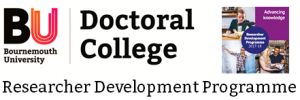


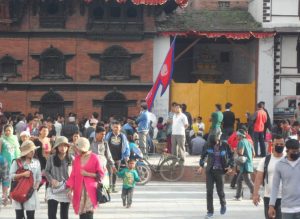
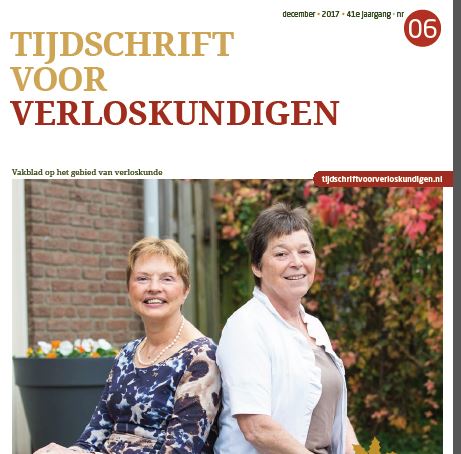
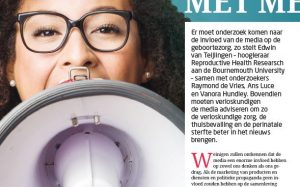

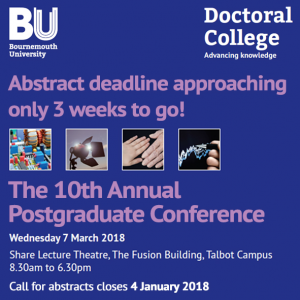













 Expand Your Impact: Collaboration and Networking Workshops for Researchers
Expand Your Impact: Collaboration and Networking Workshops for Researchers Visiting Prof. Sujan Marahatta presenting at BU
Visiting Prof. Sujan Marahatta presenting at BU 3C Event: Research Culture, Community & Can you Guess Who? Thursday 26 March 1-2pm
3C Event: Research Culture, Community & Can you Guess Who? Thursday 26 March 1-2pm UKCGE Recognised Research Supervision Programme: Deadline Approaching
UKCGE Recognised Research Supervision Programme: Deadline Approaching ECR Funding Open Call: Research Culture & Community Grant – Apply now
ECR Funding Open Call: Research Culture & Community Grant – Apply now ECR Funding Open Call: Research Culture & Community Grant – Application Deadline Friday 12 December
ECR Funding Open Call: Research Culture & Community Grant – Application Deadline Friday 12 December MSCA Postdoctoral Fellowships 2025 Call
MSCA Postdoctoral Fellowships 2025 Call ERC Advanced Grant 2025 Webinar
ERC Advanced Grant 2025 Webinar Update on UKRO services
Update on UKRO services European research project exploring use of ‘virtual twins’ to better manage metabolic associated fatty liver disease
European research project exploring use of ‘virtual twins’ to better manage metabolic associated fatty liver disease